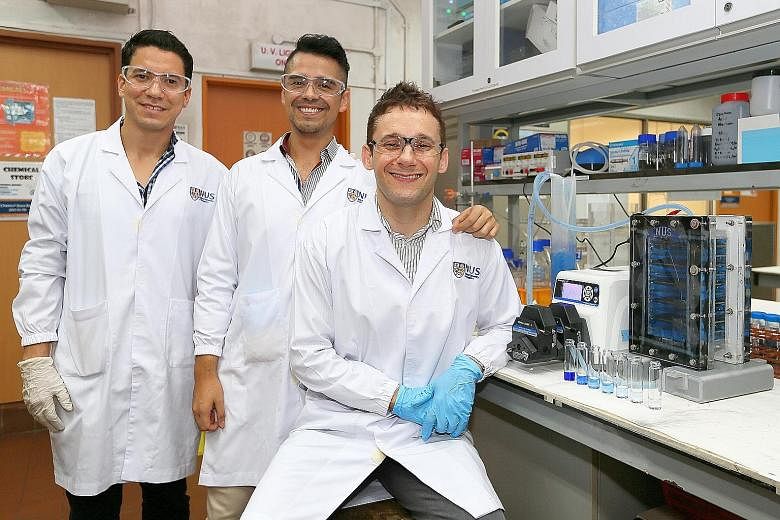Researchers here have found a new way to recycle industrial waste water using electricity, which can remove up to 99 per cent of impurities.
The system, developed by a National University of Singapore (NUS) team, is touted to be cost efficient, as it runs on low electrical power and does not result in secondary waste such as sludge, which requires further waste processing.
"Our invention provides an environmentally friendly solution and helps to raise the overall standard of industrial waste water treatment," said Assistant Professor Olivier Lefebvre from the department of civil and environmental engineering at NUS.
At a press conference yesterday, Prof Lefebvre said that the system suits companies that generate small quantities of waste that is very hard to treat.
The system uses electro-chemistry to recycle waste water and does not require the addition of chemicals. This means the waste water produced by manufacturing industries could be on a constant loop of reusable water.
The global market for waste water recycling and reuse reached nearly US$12.2 billion (S$16.4 billion) last year, and is expected to reach US$22 billion by 2021, at an estimated compound annual growth rate of about 13 per cent, said the NUS team in a release.
"China will be an important market for this, as industries there need to discharge a lot of toxic waste water," said Prof Lefebvre.
He added that industries based in Singapore but representing other countries have expressed interest in the system. These include an engineering firm, a pharmaceutical company and a local poultry farm.
The NUS system currently requires a low amount of electricity - six volts - and there are plans to tap solar power for it too.
"We want to combine this with solar energy to power it but also by using the sun to help the purification process itself, to create synergies between sunlight and electricity," said Prof Lefebvre.
He added: "Electro-chemistry is appearing more and more as a technology for the future. It has the power to create a long-term sustainable environment."
A prototype of the system has been developed for $3,000 to $5,000 and can purify 10 litres of waste water in six hours.
Prof Lefebvre, who has been working on the system since July 2015 with five other researchers, hopes to scale it up by 10 times within the next year. He added that $50,000 worth of funding is what could make this happen.

